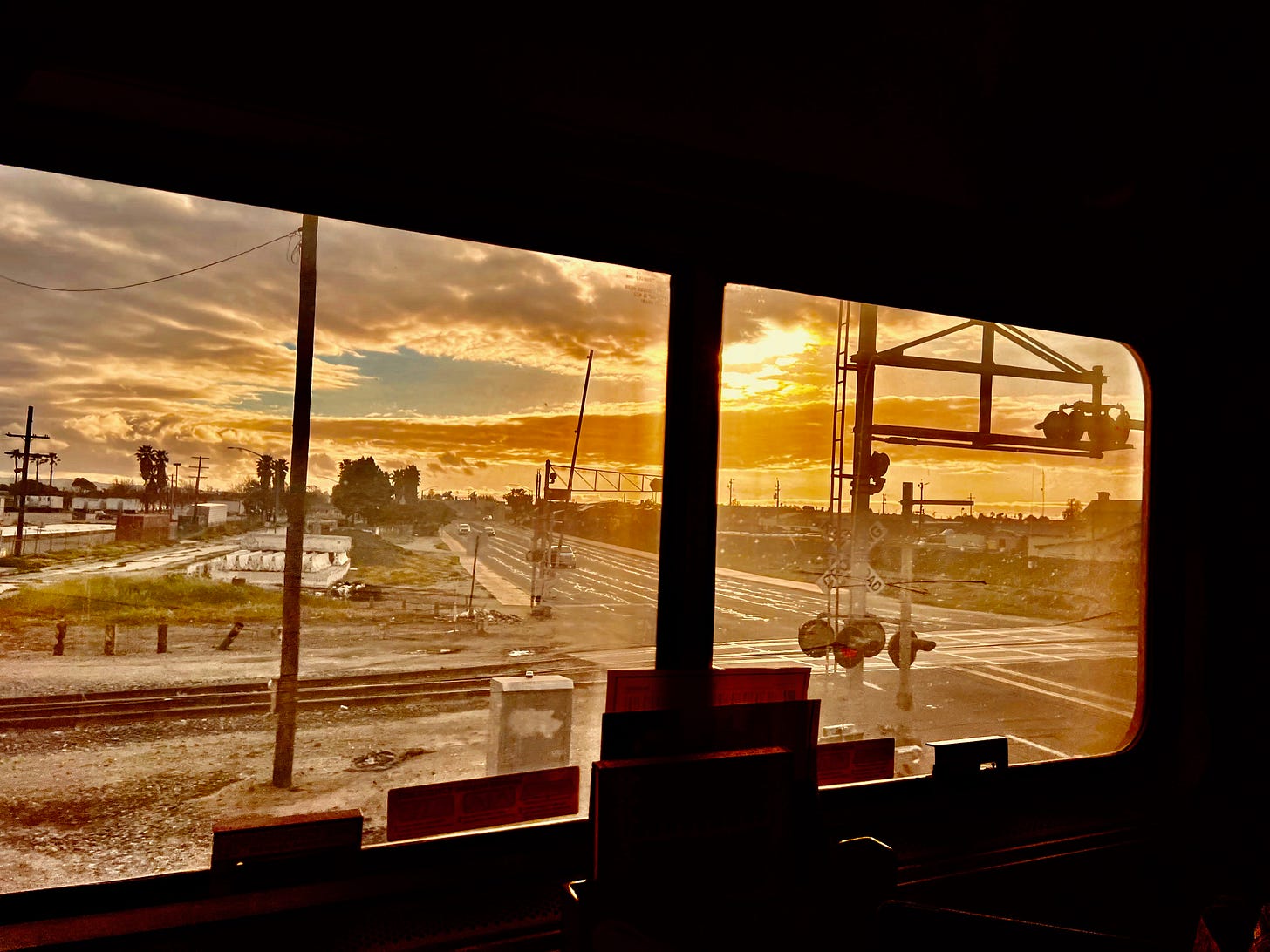(A Holy) Saturday Story: Passover Pilgrimage and Sacraments of Interruption
Traveling by train to Montana to spend Passover with chosen family, navigating a litany of detours, delays, dashed expectations, unexpected challenges, and pivoting to embrace the grace of Dayeinu.

Holy Saturday is confounding. It is the big liminal space in the narrative that is the Easter story, a day when whatever happened between Jesus’ death and resurrection happens.
Some say Jesus literally spent the day …



